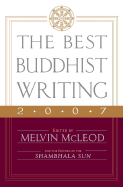Buddhist Teachings on Awakening to Our Natural Intelligence
By Dzigar Kongtrul
Shambala (July 2008)
Last year, or so, I enjoyed DK’s other book Its Up To You in a large scale way. Excited about his 2nd book, I dived in ASAP. Learning how to work on our emotional selves is so interesting and it seems as constant as breathing, eating, sleeping and just seeing the world around us.
I believe, putting it simply, all of us want to love more, see our internal and external worlds as clearly as possible. We want to stay fully healthy while expressing insights and interpreting our lives. LCT is very clearly written, adaptively arranged for the reader, essay length chapters make DK’s knowledge and understanding accessible for us to study and grasp. Light is an excellent satisfying extension of Its Up to You.
Some fine endorsements:
“LCT shimmers with frank advice on becoming more intelligent about our emotions. DK offers a practical path to clarify and peace.” –Daniel Goldman
“This is a wonderful fresh look at the amazing potential of our human mind. DK continues to challenge and encourage us.” –Pema Chodron
“LCT is a wonderful guidebook for living a very different kind of life.” – Sharon Salzberg









 "The things that matter most in our lives are not fantastic or grand. They are the moments when we touch one another." -Jack Kornfield,
"The things that matter most in our lives are not fantastic or grand. They are the moments when we touch one another." -Jack Kornfield, 










0 comments:
Post a Comment